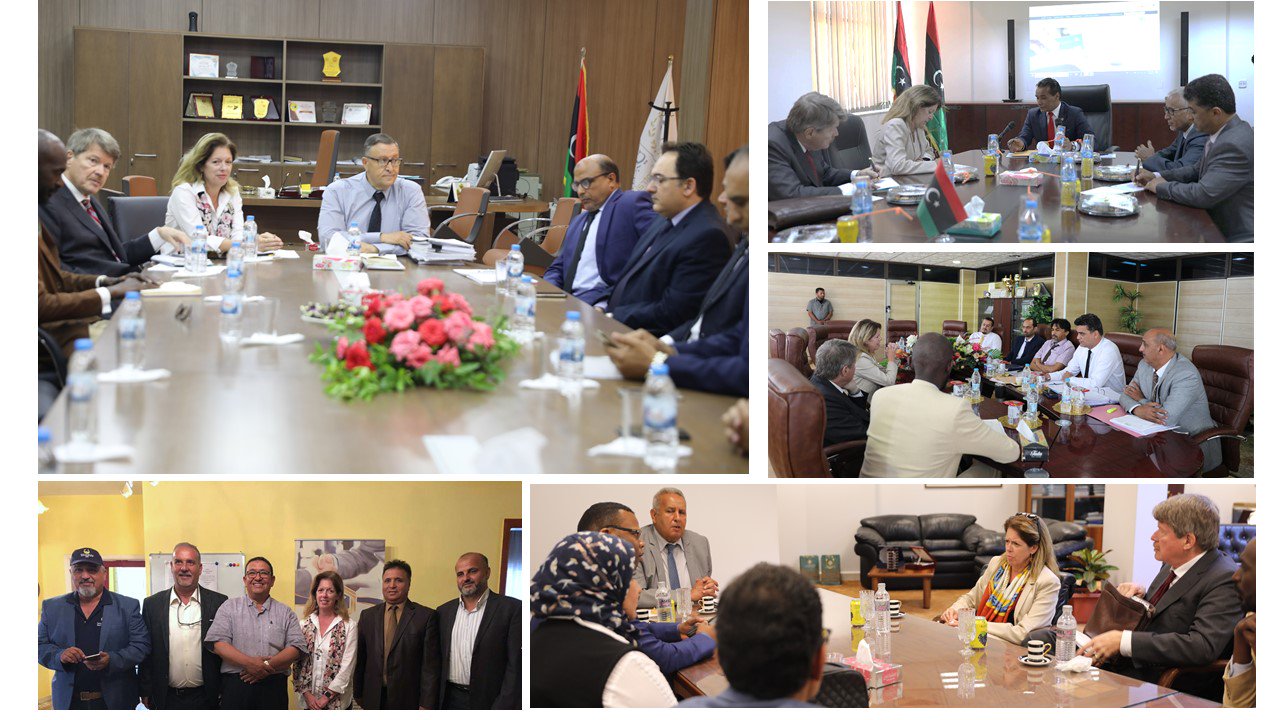By Sami Zaptia.

London, 11 July 2019:
UNSMIL and Deputy SRSG for Political Affairs, Stephanie Williams, met with the leadership of eastern-based Central Bank of Libya (CBL) in Benghazi today, together with three commercial banks and the Libyan Business Council, Benghazi branch.
UNSMIL reported that the meeting was aimed at to hearing their concerns and challenges and to brief them on UNSMIL’s push for “structural economic reform and business enhancing measures”.
UNSMIL also reported that Williams underscored UNSMIL’s commitment to complete the audit of the central bank branches in Tripoli and in Benghazi as a step forward toward the much-needed unification of the Central Bank in order to better serve the Libyan people.
It will be recalled that on 16 July 2018, Mohamed El-Sallak, official spokesperson for Presidency Council and Government of National Accord head, Faiez Serraj, had revealed that the UN Security Council had responded ‘‘positively’’ to the 11 July request by Serraj for the urgent formation of an ‘‘international technical committee’’ to review and audit the expenses, revenues and transactions of both of Libya’s Central Banks in Tripoli and Beida.
The call for the international independent audit by Serraj was seen as an attempt to satisfy Libyan National (LNA) Army Commander, Khalifa Hafter, in response to his accusation that the Tripoli CBL was financing terrorists, including Ibrahim Jadran.
The Presidency Council statement on the issue said that the action is aimed at achieving ‘‘the principle of impartiality and transparency and to face a very serious situation’’.
It had added that this move was in the public interest, clarifying the reality of the financial situation for all and the expenditure of the previous period of any institution without exception. The move will contribute to the consolidation of the country’s financial and economic institutions on a sound basis, enhance confidence in the functioning of these institutions, improve the economy of the country and support stability, the statement at the time had concluded.
The Tripoli CBL had welcomed Serraj’s call for the formation of an audit committee.
The matter of an independent international audit of Libya’s oil money had arisen after a series of interlinked events set off by ousted former Petroleum Facilities Guard Commander (PFG) Ibrahim Jadran.
Hafter and his LNA had handed over the oil facilities in the eastern oil crescent to the eastern-based NOC. This came on the back of the LNA recapturing the oil crescent after Ibrahim Jadran had captured them on 14 June.
This, in turn, had led to the NOC announcing a force majeure on 2 July 2018 in response to Khalifa Hafter and his LNA action.
Hafter’s move had been widely condemned by the international community. The return of the oil crescent by Khalifa Hafter and the LNA to the Tripoli-based NOC had come on the back of concerted international pressure on Hafter.
It will also be recalled that the issue of the lack of the equitable distribution of Libya’s oil wealth and the corruption in Tripoli in general and specifically the Tripoli CBL, is one oft quoted political grievance by eastern Libya.
The East accuses the Tripoli-based militias of, through coercion, having access to preferential hard currency letters of credit from the Tripoli CBL.
It is hoped that an independent international audit of both CBL’s would resolve or diffuse the issue of CBL corruption one way or the other and facilitate its reunification.
https://www.libyaherald.com/2018/11/08/cbl-governors-meet-in-tunis-to-agree-international-audit-process/
https://www.libyaherald.com/2018/08/28/unsmil-confirms-tunis-cbl-governors-meeting-between-el-kaber-and-hibri-on-auditing-the-cbl/
https://www.libyaherald.com/2018/08/28/unsmil-confirms-tunis-cbl-governors-meeting-between-el-kaber-and-hibri-on-auditing-the-cbl/
https://www.libyaherald.com/2018/05/29/cbl-issues-initial-response-to-audit-bureau-report-criticism/
https://www.libyaherald.com/2018/05/28/audit-bureau-accuses-cbl-of-damaging-libyan-economy-audit-bureau-2017-annual-report/







